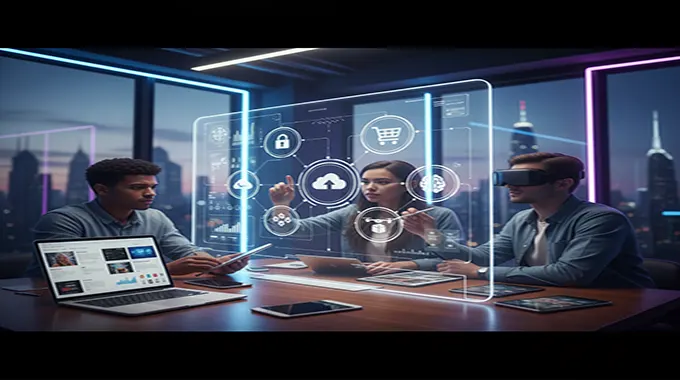E-commerce startups can gain a significant competitive edge by adopting the latest internet business technologies. These innovations are reshaping the online retail landscape by enhancing customer experience, improving operational efficiency, and creating new revenue streams.
Artificial Intelligence (AI) and Machine Learning (ML)
AI is the most transformative technology in e-commerce today. It powers personalization, allowing businesses to analyze vast amounts of customer data to offer tailored product recommendations, dynamic pricing, and personalized marketing messages. AI-driven chatbots and virtual assistants provide instant 24/7 customer support, handle routine inquiries, and guide shoppers through the purchase journey. Furthermore, predictive analytics help startups optimize their supply chain, manage inventory, and forecast demand to prevent stockouts and reduce costs.
Augmented Reality (AR) and Virtual Reality (VR)
AR and VR are bridging the gap between physical and online shopping by providing immersive, interactive experiences. With AR, customers can use their smartphone cameras to visualize how a product, such as furniture or clothing, would look in their own space before buying. . This technology builds consumer confidence and significantly reduces return rates. VR can be used to create virtual showrooms where customers can explore products in a simulated environment, offering a new level of engagement.
Social Commerce and Livestream Shopping
Social media platforms are no longer just for marketing; they are now direct sales channels. Social commerce integrates the entire shopping journey—from product discovery to checkout—directly within platforms like Instagram, TikTok, and Facebook. This trend is especially popular with younger demographics. Livestream shopping, a growing component of social commerce, involves brands or influencers showcasing products in real-time video streams, answering questions, and offering limited-time deals to drive impulse purchases and create a sense of urgency.
Voice Commerce
With the proliferation of smart speakers and voice assistants, voice commerce is an emerging trend. It allows customers to make purchases using simple voice commands, providing a hands-free and convenient shopping experience. E-commerce startups can optimize their websites and product descriptions for voice search by using natural language keywords and structuring content to be easily understood by AI assistants.
Blockchain Technology
While not as visible to the end-consumer, blockchain technology is enhancing security and transparency in e-commerce. It creates a decentralized, tamper-proof record of transactions, which is critical for securing payments and preventing fraud. Blockchain can also be used to improve supply chain visibility, allowing customers to trace the origin of a product, which is particularly valuable for industries like luxury goods or sustainable products where authenticity and ethical sourcing are paramount.














